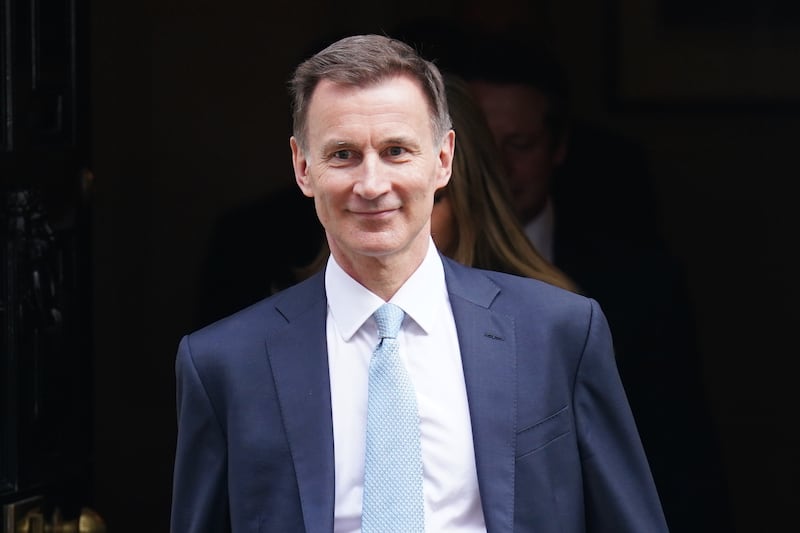The UK’s economy slipped into a technical recession at the end of 2023, but official data suggests the Northern Ireland economy may not have contracted in the same way
The Office for National Statistics (ONS) estimated that UK gross domestic product (GDP) fell by 0.3% in the final three months of last year after output contracted by more than expected.
It followed a decline of 0.1% in the previous quarter (July to September).
Recording two successive quarters of contracting GDP means the threshold has been crossed for a technical recession.
The closet thing the north’s statistics body Nisra has for measuring GDP is the Northern Ireland Composite Economic Index (NICEI).
It officially measures economic output across the private and public sectors.
When the latest index was published last month, it reported that output in the north had grown by 0.6% in the third quarter of 2023 (July to September), suggesting Northern Ireland had outperformed the wider UK economy during that period.
- The number of new homes completed in Northern Ireland falls to lowest point in 64 yearsOpens in new window
- North’s private sector ended 2023 in growth mode, new business survey from Ulster Bank suggestsOpens in new window
- EY: Northern Ireland economy ‘to expand by 0.7%’ in 2024, but job growth expected to “stall” this yearOpens in new window
The index suggested output in the Northern Ireland economy had grown by 2.2% over the year.
It followed a second quarter decline during 2023.
The NICEI for the fourth quarter is not due to be published until March 28.
One of the most trusted economic surveys in the north, Ulster Bank’s purchasing managers’ index, suggests output in the Northern Ireland private sector contracted across July to November, before growing again in December.
Based on responses from 200 businesses, the survey does not track output from the north’s significant public sector.
The last NICEI report output in the public sector increased by just 0.2% in Q3 2023.
A report published by EY last week estimated that the Northern Ireland economy ‘flatlined’ in 2023, with GVA (gross value added) contracting by 0.2% over the entire year.
GVA, which is used to calculate GDP, measures the contribution made to the economy by individual producers, industries, sectors or regions.
GDP is estimated to have fallen in October to December (Quarter 4):
— Office for National Statistics (ONS) (@ONS) February 15, 2024
▪️ services fell (-0.2%)
▪️ construction fell (-1.3%)
▪️ production fell (-1.0%)
➡️ https://t.co/gsheUbREuI pic.twitter.com/r7xi4Eokhu
Nevertheless, the ONS announcement on Thursday marks the first time the UK has officially entered recession since the first half of 2020, when the initial Covid-19 lockdown sent the economy plunging into reverse.
The figures deal a blow to Prime Minister Rishi Sunak, who has promised to grow the economy as one of his five priorities.
Liz McKeown, ONS director of economic statistics, said: “Our initial estimate shows the UK economy contracted in the fourth quarter of 2023.
“While it has now shrunk for two consecutive quarters, across 2023 as a whole the economy has been broadly flat.
“All the main sectors fell on the quarter, with manufacturing, construction and wholesale being the biggest drags on growth.”








